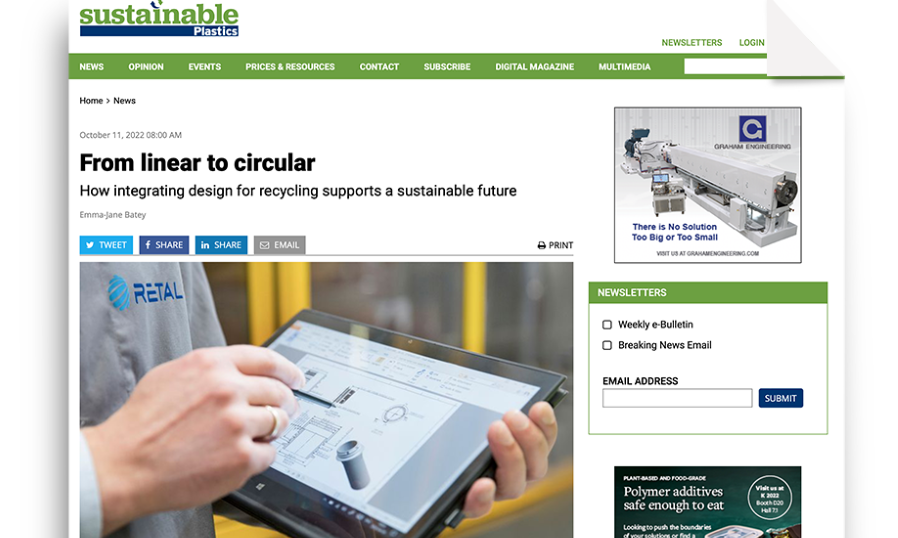
Are we doing everything we can?
Belgium-based non-profit Plastics Recyclers Europe has created RecyClass, a platform that is a vocal proponent of Design for Recycling (DfR) and its clear approach shares how responsible players in the plastics value chain can do more, earlier. RecyClass defines its purpose as ‘a cross-industry initiative facilitating the transition towards a circular economy’, which it promotes utilising its roster of ‘scientific findings, transparency and traceability’. A useful resource is its Design Book, which was published in June 2022 and is now being increasingly referenced as a science-driven handbook for the entire plastics value chain.
The Design Book is the result of a collaboration from across the entire plastics value chain, particularly members and supporters of RecyClass, with RecyClass Chairman Paolo Glerean explaining that it can, ‘lead to improved quality of recycled plastic and stimulates its uptake in new packaging applications’, while ‘opening the door for a circular plastic future.’
Emmanuel Duffaut, Sustainability Director for multinational plastics packaging manufacturer RETAL, shares how the RecyClass Design Book is an excellent way to clarify and define how that journey from linear to circular economy for the plastics industry. “There are limitations to simply shouting that increasing recycled material volumes in plastic packaging is the answer, especially in food packaging; of course, this is part of the solution, but there are currently also market issues with supply and quality, so strict legislation on this topic is not only helpful. The RecyClass Design Book is a welcome addition to our continually progressing arsenal of circularity tools, as it clearly defines the concept and guidelines of DfR for all players in the plastics industry, showing how we can work together to dramatically increase the likelihood of a realistic plastic circular economy.”
Read full version at Sustainable Plastics
Read / download in PDF